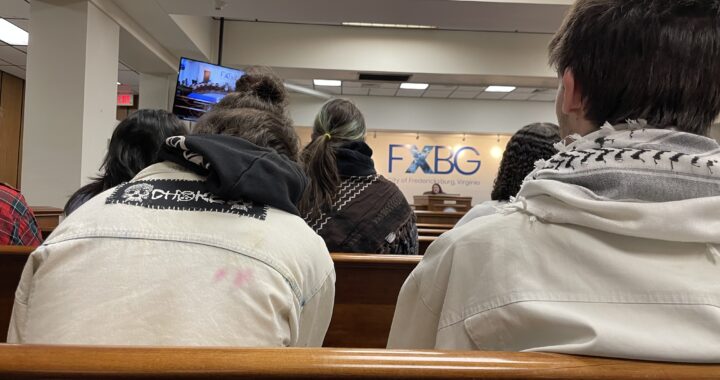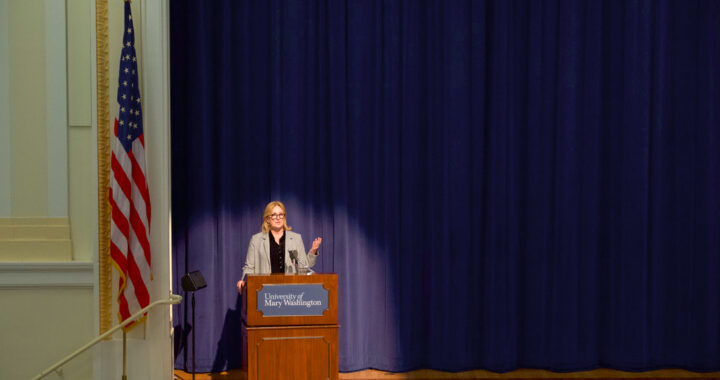The 'Proof' is in the Production
3 min readBY ANNIE KINNIBURGH
UMW senior Mary Pilgar is used to seeing life from a male perspective. She has played men or androgynous characters in her many past roles for UMW Theatre.
But this year Pilgar will be playing a female role: Catherine, the main character in the Klein Theatre’s fall production of “Proof.”
“It was nice to play a character of my own gender,” she said. “I didn’t have to think, ‘Oh, what would a man do in this situation.’ It made it easier to focus on the performance.”
Newer actors found the play a departure from previous experience as well.
Sophomore Paul Morris is performing in the play in his second role at UMW. However, it was far different from his nearly-comedic performance last spring as Mercutio in “Shakespeare’s R&J,” which was performed entirely in Shakespearean English.
“‘R&J’ was definitely harder to memorize,” Morris said, “And with an all-male cast, the atmosphere was different.”
“Proof’s” dialogue, however, represented a new challenge.
“The dialogue is so realistic,” Morris said. “Saying ‘Uh’ and making it sound natural is harder than it seems. ‘R&J’ was performance and Proof is definitely more acting. Realism is much harder to pull off.”
The play centers around the questionable authorship of an important math proof and whether a woman could have written it. Helen Housley, the play’s director, says the play asks us to consider the place of women in the sciences.
“Men in their early twenties can write brilliant proofs, but when a woman claims to have done the same, no one believes her,” Housley said.
According to Housley, the issue of gender equality is no thing of the past.
“This is still a problem today,” she said. “Women still struggle to participate in the sciences. It’s still for the most part a man’s game.”
For Pilgar, a double major in physics and theatre, Catherine’s difficulties as a mathematician and a woman hit close to home.
“I understand what it’s like to be a woman in what is traditionally a man’s profession,” she said. “The role of Catherine flowed very nicely because she’s so close to me.”
According to sophomore and costume assistant Tara Lescault, scenes in the play alternate quickly between the present day and flashbacks, requiring costume changes in the seconds between scenes. Lescault says she quickly adjusted to the fast-paced environment.
“We had to dress the actor for a completely different scene in about 20 seconds, sometimes in less time,” Lescault said. “It is our job to make these actors look good onstage.”
Lescault says the adeptness of the wardrobe department was essential for a smooth running of the show as well as a challenge due to the shortness of the production schedule.
The first read-through of the play happened only four weeks before opening night, leaving three weeks for preproduction and one week for technical and dress rehearsals.
“It’s very difficult to put a show together in such a short time,” Housley said. “But it’s been a very smooth process in terms of directing. The actors have done some very good work creating their characters and developing their roles.”
Much like the play itself, the Klein Theatre’s production of “Proof” seems simple, but Housley says there are hidden complexities beneath the surface.
“There have been difficulties,” Housley said. “But I think we’ve met the challenge.”











